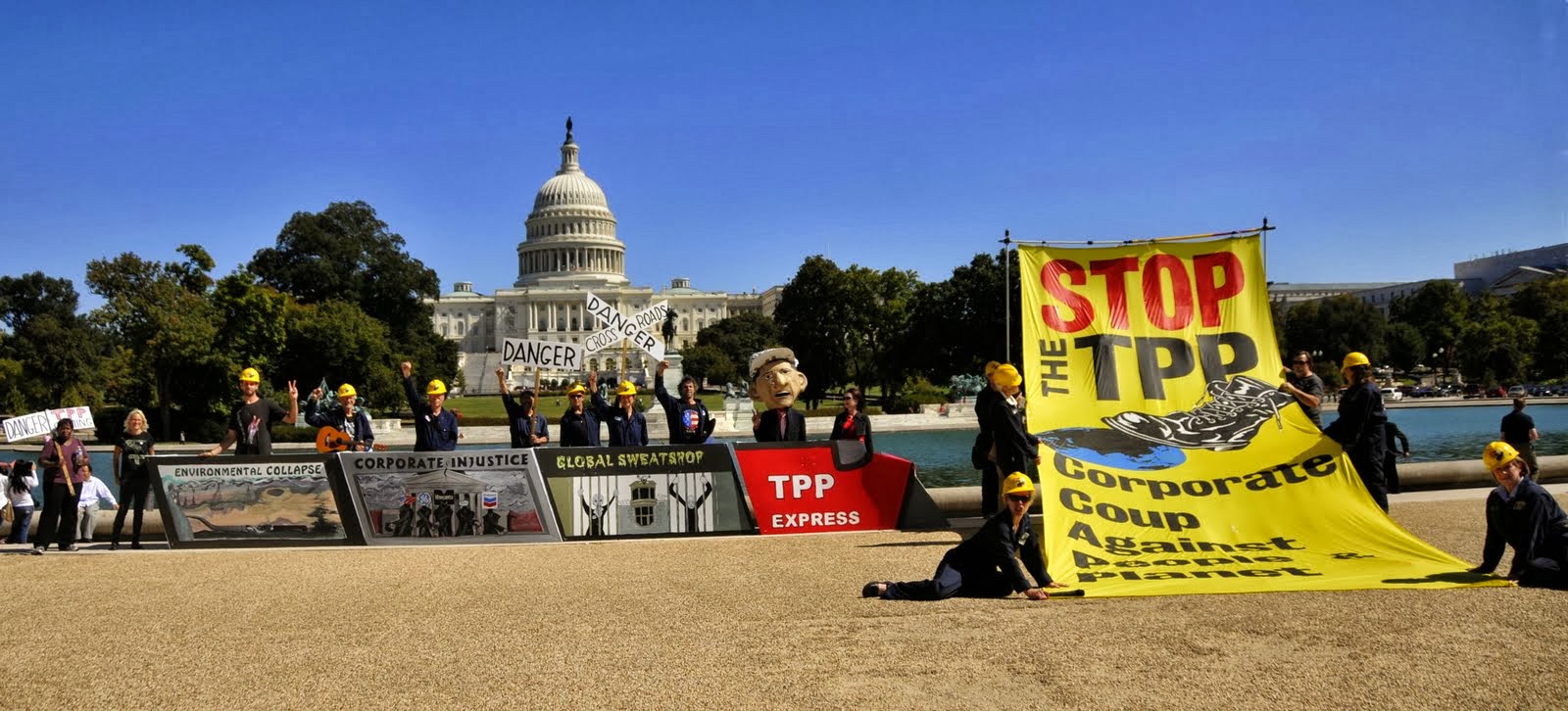Safer Chemicals Healthy Families: Stop “Fast Track”
"Fast Track is a piece of legislation that was first introduced by Nixon in 1974, but was recently re-introduced by U.S. Representative Dave Camp and Senator Max Baucus as a bill that would grant President Barack Obama “Fast Track” trade promotion authority.
This is a fancy way of saying it would take away power from Congress to amend and discuss important details of secret international trade deals. Trade deals that may roll back state, national and international laws on toxic chemicals, environmental and worker protections. "Hmmm. Let's take a look at the trade deal itself.
Stop TPP
"The nations involved are the United States, Australia, New Zealand, Singapore, Malaysia, Vietnam, Brunei, Chile, and Peru. Japan, Mexico and Canada have indicated a desire to join.
- TPP will offshore millions of good-paying jobs to low-wage nations, undercutting working conditions globally and increasing unemployment.
- TPP will expand pharmaceutical monopoly protections and institute longer patents that will decrease access to affordable medications
- TPP will limit food GMO labeling and allow the import of goods that do not meet US safe standards.
- TPP will institute SOPA, PIPA, and CISPA-like regulations and Internet measures which restrict our right to free speech.
- TPP will roll back Wall Street regulations, and prohibit bans on risky financial services.
- TPP will give multinational corporations and private investors the right to sue nations in private tribunals. These tribunals have the power to overturn environmental, labor, or any other laws that limit profit, awarding taxpayer funded damages.
- TPP will encourage the privatization of lands and natural resources in areas where indigenous people live."
"One of the most controversial provisions in the talks includes new corporate empowerment language insisted upon by the U.S. government, which would allow foreign companies to challenge laws or regulations in a privately run international court. Under World Trade Organization treaties, this political power to contest government law is reserved for sovereign nations. The U.S. has endorsed some corporate political powers in prior trade agreements, including the North American Free Trade Agreement, but the scope of what laws can be challenged appears to be much broader in TPP negotiations."One of the many reasons people have been pushing back against this law is that negations have been taking place in secret. Wikileaks is responsible for finding and releasing some documents to the public. I'll compile some links below that will provide more information on the trade agreement and actions you can take.
Expose the TPP
Citizen Trade Campaign
Flush the TPP


No comments:
Post a Comment